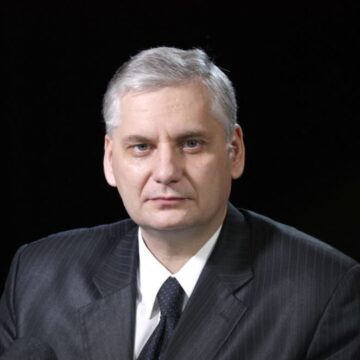The current crisis in Ukraine has once again ignited the debate about whether the choice in favor of the European Union or Eurasian integration is also a choice of values.
This topic has arisen before. During the “color revolutions” in the former Soviet republics, the desire “to escape from geography” by strengthening ties with the EU, the U.S. and NATO was perceived as an important prerequisite for their democratization by a significant group of experts, both in the West and in Eurasia.
At the same time, the strategic cooperation with Russia was considered as a synonym for the preservation of authoritarianism and an archaic system of governance. However, can we say that this scheme is applicable to the post-Soviet political processes today?
Equating the choice of foreign policy priorities with the choice of values is based on the conception that the diplomacy of leading international players is based on ideological priorities. No doubt, free markets and democracy take key positions in the rhetoric of the U.S. and the EU, while Russian politicians prefer to talk about stability, preservation of international law, and the primacy of national sovereignty over outside interference.
However, the rhetoric and the national interests are by no means always the same in practice.
The “Contract of the Century” concluded between Azerbaijan and the major Western oil companies in 1994, as well as the participation of this Caspian republic in energy projects supported by the West, such as Baku-Tbilisi-Ceyhan pipeline, have not made it a leader in terms of democracy.
It is the only country among the former Soviet republics where power is passed down from father to son. At the same time, Azerbaijan has never been a member of the Collective Security Treaty Organization (CSTO), and it is not planning to join the Customs Union either.
International human rights organizations, including American ones, have often reported about the authoritarian regime in Turkmenistan. However, this does not prevent the EU and the U.S. from developing energy partnerships.
Uzbekistan, where President Islam Karimov has ruled unchallenged for 22 years, is evaluated the same way. This fact, however, does not prevent us from seeing official Tashkent as a “valuable partner of NATO” in the Afghan operation.
By the way, last year this republic suspended its membership in the CSTO and, like Azerbaijan, it does not intend to join the Customs Union. Turkmenistan will take a neutral status. However, it is doubtful whether anyone dares to compare it with Switzerland by the level of its democracy.
For a long time Western media called Georgia a “beacon of democracy.” However, Mikheil Saakashvili’s image of an advanced democrat in the former Soviet Union faded after the scandalous stories of disrupting mass protests in Tbilisi in 2007 and 2011, and the publication of materials on violence in the country’s prisons system.
We would like to note that Georgia has not maintained diplomatic relations with Russia since 2008, and before that, for many years, Tbilisi had been one of the most problematic partners of Moscow.
Meanwhile, many former Soviet republics are trying hard not to make a strict choice between the Western and Russian vectors. Some are succeeding more (Kazakhstan, Uzbekistan), someone less (Armenia, Ukraine). However, the questions of choice of values are put into the background.
We should note also that the development of contacts with NATO or the European Union gives neither a guarantee of acceptance into the ranks of these structures, nor a guarantee for building democracy.
Today, many observers have reported about the “lost European dream of Ukraine.” In fact, the association agreement with the EU would not even create a visa-free regime, not to mention full membership in the European family. Europe has similar agreements with a number of countries in North Africa and the Middle East (Algeria, Egypt, Jordan, and Tunisia).
Generally speaking, this is a strange notion to live in the expectation that some external benefactor will do all the hard work for you. Alas, many post-Soviet leaders exchanged the image of a generous and fair Communist Party of the Soviet Union Central Committee for an equally inspiring idea of the all-good role of Brussels and Washington.
However, real life is not a scheme. Moreover, to understand the complex geopolitical processes in the former Soviet Union, we should not replace one linear progressive scheme from the arsenal of “scientific communism” to “scientific democracy,” which builds an artificial dependence of national interests on an alleged choice of values and an almost existential choice.
Yes, Eurasia today is not like the “near abroad” of the early 1990s. Along with Russia, many new players are acting here, and the former Soviet republics themselves differ in their interests more and more.
Even the three Caucasian republics gave three different answers in the issue of their choice between European and Eurasian integration. However, this choice itself is far more complex than following a particular rhetorical scheme.
The sooner experts and practitioners understand this, the easier it will be to refrain from unnecessary high expectations that are inevitably fraught with disappointments.










